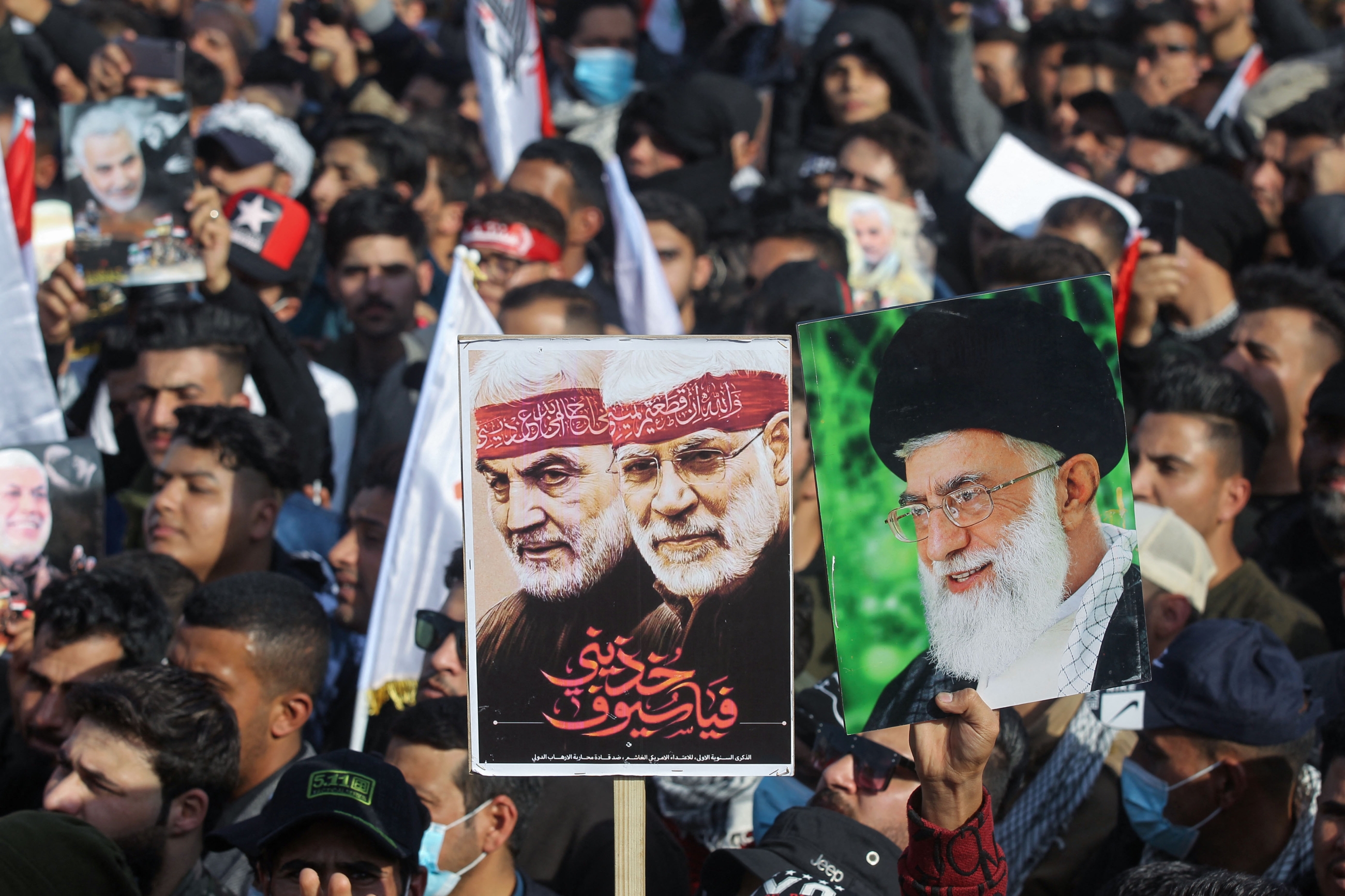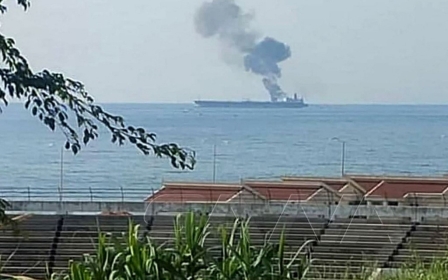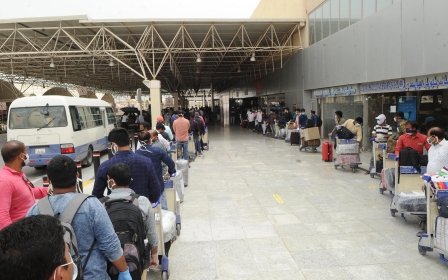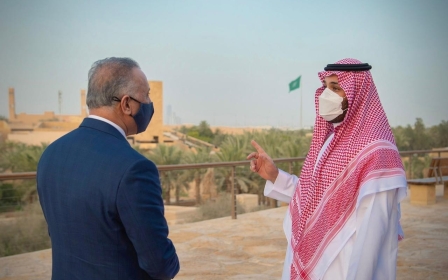Iran's foreign minister complains of Soleimani undermining diplomacy in leaked tape

Iranian Foreign Minister Mohammad Javad Zarif has complained that the country's powerful Islamic Revolutionary Guard Corps (IRGC) regularly override government decisions in a leaked audio recording.
The three-hour-long audio, acquired by the opposition Iran International news site, also appears to indicate a longstanding rivalry between Zarif and the late IRGC commander Qassem Soleimani.
At one point Zarif complains that Soleimani worked to undermine his negotiation of the 2015 nuclear deal and that his policies in Syria were damaging to Iran's long-term interests.
“In the Islamic Republic, the military field rules,” Zarif can be heard to say.
“I have sacrificed diplomacy for the military field rather than the field servicing diplomacy.”
New MEE newsletter: Jerusalem Dispatch
Sign up to get the latest insights and analysis on Israel-Palestine, alongside Turkey Unpacked and other MEE newsletters
He says that he attempted to follow a "cold war strategy" with regards to negotiations but had been forced by Soleimani to subordinate his diplomacy to military needs.
"On the other hand, I have never been able to ask Soleimani to do something that would serve my diplomatic moves," he said.
Zarif's conversation with economist Saeed Leylaz was clearly not meant for publication, something the foreign minister repeatedly mentions on the recording.
The leak of the recording comes as Iran is looking to negotiate rejoining the 2015 nuclear deal, which effectively collapsed during the administration of US President Donald Trump, with indirect talks currently underway in Vienna between the two sides.
Trump's successor, Joe Biden, has expressed a willingness to return to the deal, as has Zarif. However, conservatives in Iran have long taken a sceptical view of the deal and have resisted any attempt to rejoin it.
High level tensions
Soleimani was killed on 3 January 2020 in a US air strike in Baghdad that also took the life of Iraqi militia commander Abu Mahdi al-Muhandis.
Iran reacted furiously to the incident and has lionised Soleimani in its propaganda.
However, the leaked audio recording shows Zarif breaking from this line, complaining that the commander's power in Iran outstripped his own.
As an example, Zarif explains how two commanders of the Quds Force - the elite IRGC unit commanded by Soleimani - went to see then Iraqi prime minister Adel Abdul Mahdi on 8 January 2020 to inform him of a retaliatory attack, where they would be firing missiles at a military base where US troops were stationed, 45 minutes before it took place.
"The United States knew about the attack on Ain al-Assad in Iraq before I was informed of it," he says.
He also complains that Soleimani undermined his efforts to negotiate the Iran nuclear deal by visiting Moscow shortly after the deal was agreed.
"That trip was made upon Moscow's initiative without the Iranian foreign ministry having any control on it. Its objective was to destroy the JCPOA," he says, using the official acronym for the deal.
He adds that the foreign ministry's role in determining Iran's foreign policy is "nil".
Middle East Eye delivers independent and unrivalled coverage and analysis of the Middle East, North Africa and beyond. To learn more about republishing this content and the associated fees, please fill out this form. More about MEE can be found here.





